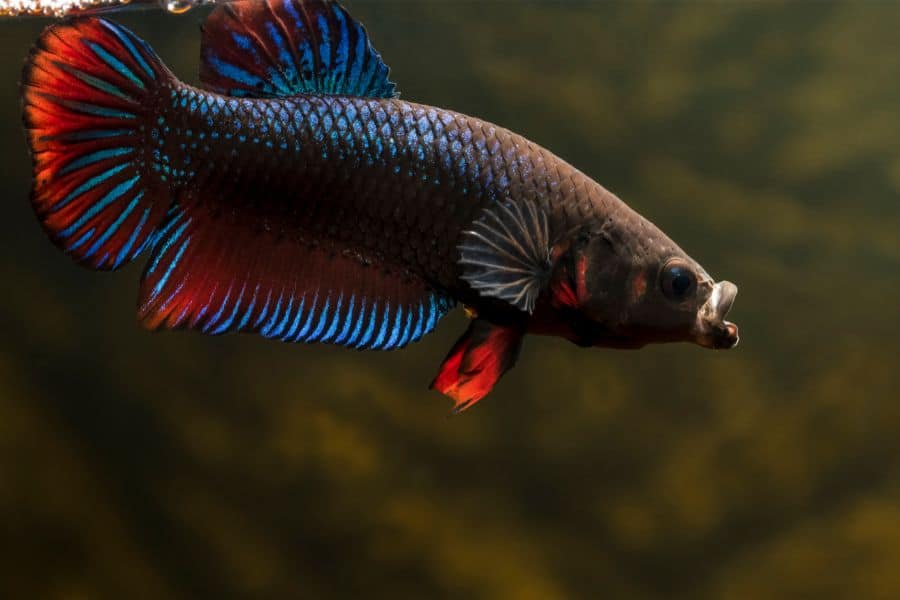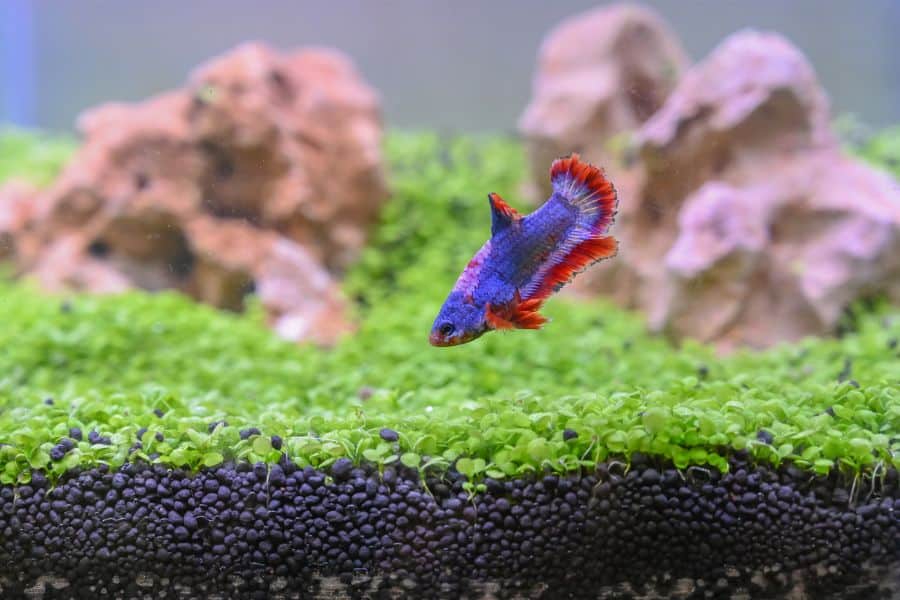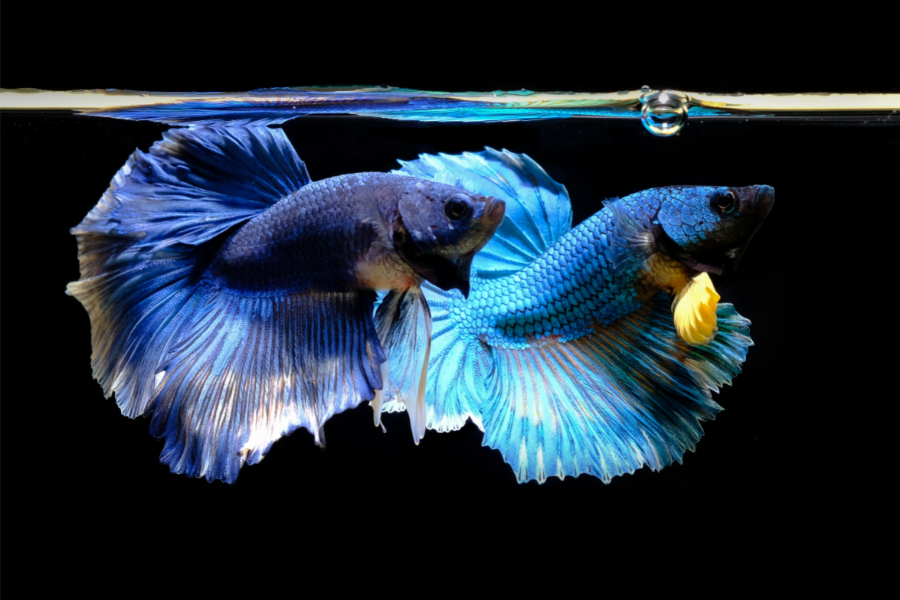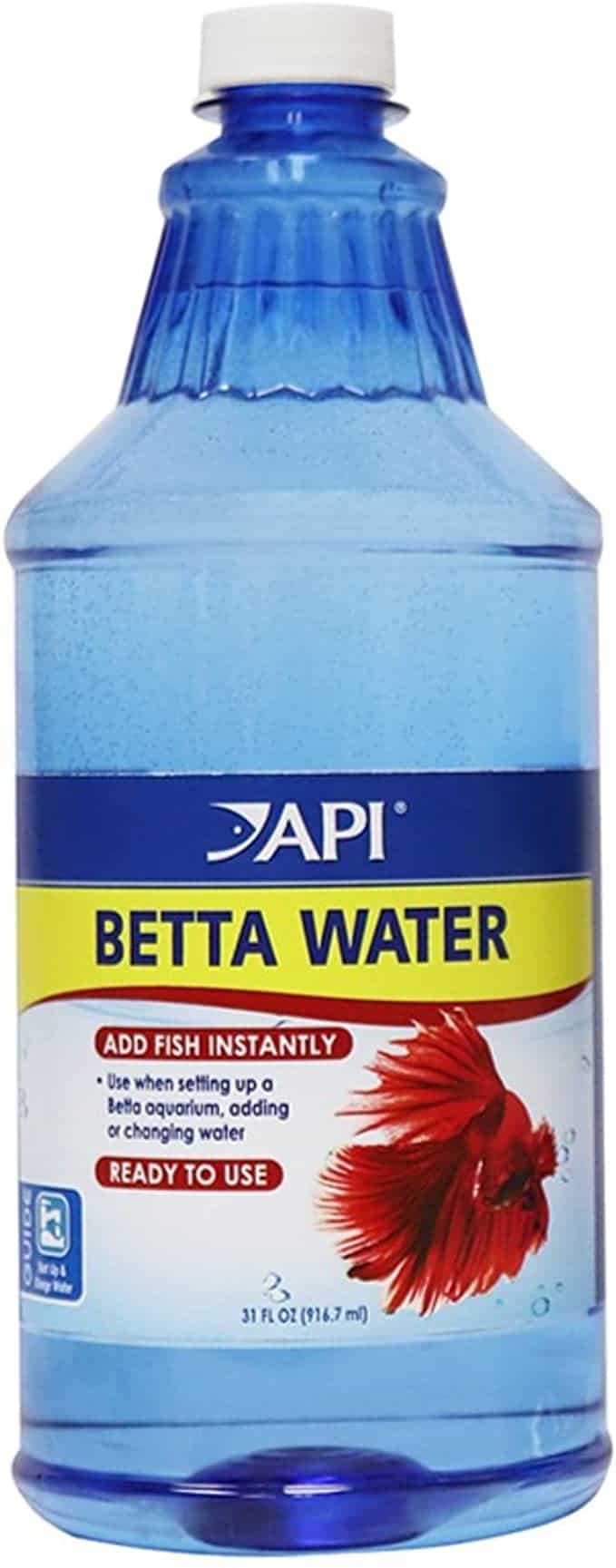Bettas are one of the hardier fancy aquarium fish you can get, making them very suitable for beginners. This is because they are naturally a capable breed, having originated from water with less-than-ideal circumstances.
But this doesn’t mean that Bettas can just live in any kind of water.
While Bettas can tolerate a wide range of environments, there are water parameters that are ideal for their health and some that might make them sick.
In this article, we’re going to talk about Betta water parameters: why it’s important, what it is, and what kind of water is suitable for your little fish friend!
Why Is Water Type Important for Betta Fish?
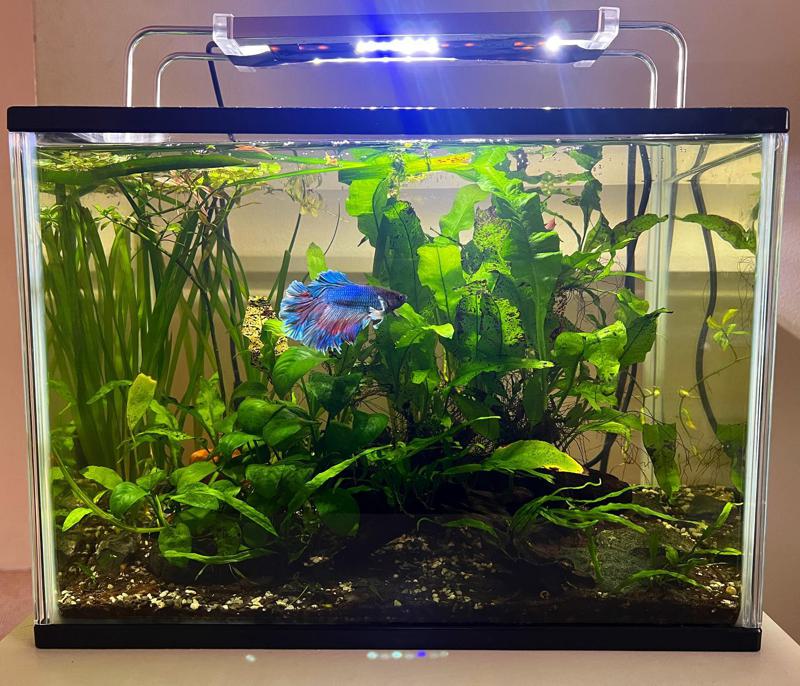
Water parameters such as pH, temperature, and water hardness are important to aquarium fishes because these factors affect your fish’s ability to maintain their health.
The kind of aquarium fishes we encounter in the hobby come from an assortment of many different environments from multiple countries around the globe. This means that they’ve evolved to be suitable for different water parameters.
Betta fishes are no different.
For example, a suitable water temperature helps regulate the fish’s metabolism. On the other hand, pH and “hardness” levels determine the availability of essential minerals and the ability of the fish to absorb them.
Improper water parameters can lead to stress, illness, and even death in the fish, making it crucial for aquarium owners to monitor and maintain appropriate water conditions for their pets.
This is why it’s important to determine what kind of water is best for you, Betta – but don’t worry, that’s what we’ll talk about in the next sections.
Explaining Betta Fish Water Parameters
The term water parameters refer to the various chemical characteristics of your aquarium’s water that can affect the health of your fish and any other aquatic life that you might be raising there.
There are many water parameters that you can test for, but the most significant ones to know are the following.
- This measures the acidity or alkalinity of the water, with a neutral pH of 7.0. Different species of fish have specific pH requirements, and deviation from their ideal pH range can cause stress and health problems.
- Just like other animals, fish are affected by the temperature of their environment. Temperature plays a crucial role in regulating the metabolic processes of your aquatic friends, so they can get sick and die if they don’t have the right temp.
- Water hardness refers to the amount of trace minerals in the water, primarily calcium and magnesium, present in the water. Different species of fish have specific hardness requirements.
- This is a toxic by-product of fish waste and uneaten food. High ammonia levels can lead to stress and death in the fish, so you need to monitor the ammonia levels in your aquarium. This is also why you filter and change the water.
- Like ammonia, nitrite is another toxic product of your fish, produced by converting ammonia. High levels of nitrite are extremely harmful.
- While it is not as toxic as ammonia or nitrite, elevated levels can contribute to algae growth and affect the health of your fish.
For every fish you get, you first need to determine the water parameters they need to ensure that they live a safe and healthy life.
It’s also worth noting that the appearance of the water is not directly related to its parameters. While it’s true that dirty-looking water is likely harmful to your fish, even crystal clear waters can have toxic levels of ammonia, nitrite, and nitrates, for example.
This is why it’s important to regularly test the water of your Betta tank to ensure that they still have the right parameters.
Ideal Water Parameters for Betta Fish
Just like all other fishes, Betta fish also have water parameters that are ideal for them. Knowing these parameters is important, as this will greatly inform what kind of water Betta fishes can live in.
The ideal water parameters for Betta fish are the following.
- pH: 7.0 – 7.5 (slightly acidic to neutral)
- Temperature: 76°F – 82°F (24°C – 28°C)
- Hardness: 5 – 15 dGH (degree of general hardness)
- Ammonia: 0 ppm (parts per million)
- Nitrite: 0 ppm
- Nitrate: Below 20 ppm
Types of Water for Betta Fish Tanks
Now that you know the typical range of water parameters that Betta fish can survive in, you can better identify what kind of water is best for your beloved fishy friend.
When you’re starting a new aquarium, there are a lot of ways you can fill it up with water. For example, you can get some from the tap, buy distilled water from the store, or even buy specifically-designed Betta fish water.
Let’s discuss the advantages of each choice in this section.
Tap Water
Tap water is the most commonly used water for Betta fish and can be easily obtained by any aquarist. All you have to do is go to the tap and turn it on – which is what most aquarists would do when they’re attempting to set up a new Betta aquarium anyway.
It’s also not completely stripped, as it can still provide some minerals and nutrients that can be beneficial for your Betta fish.
But there’s a big downside: tap water often contains chlorine, heavy metals, and other chemicals or contaminants that can be harmful to your Betta fish.
In order to make sure that your tap water is safe for your Betta fish, it is important to use a water conditioner that is specifically designed for aquariums. This will help to remove any harmful toxins and chemicals that are present in the water.
Rainwater
Rainwater is not as harmful as tap water but can still cause some issues depending on your location. This is because airborne pollutants can vary depending on geographic location.
If you’re in a place with lots of air pollution, some of that can be carried into the clouds and mixed with the rainwater that falls down.
Bettas are tropical freshwater fish and prefer a warm, stable water environment with specific pH, temperature, and hardness levels – and you first need to ensure that your rainwater measures up to those standards.
This means that testing your rainwater for chemicals and heavy metals is critical if you plan to use it for your Betta tank.
Springwater
Bottled spring water is a better choice than most. Springwater typically wouldn’t have chlorine, heavy metals, and other forms of chemical additives, so that works out well for your Betta. Though, most spring water does have mineral content, which can affect the pH level of the water.
Of course, the biggest con in using spring water is that it can grow to be very expensive, especially when compared to treated tap water.
So, while possible, it’s often not a practical choice for many hobbyists unless in special circumstances.
Distilled Water
Bettas can technically survive in distilled water, but it is not ideal for their long-term health.
Distilled water is processed so that it’s devoid of minerals and other essential elements that Bettas need to thrive. This can lead to health problems if used over a prolonged period of time.
This kind of water also has no buffering capacity, which means that because it is so pure, the water body can fluctuate rapidly in pH if any contaminants or substances are added. This can cause stress and harm your Bettas.
Well Water
You might think that well water is suitable for your Betta friend. After all, it comes out of the ground, is perfectly natural, and doesn’t seem to have the issues that other kinds of water do.
What you don’t realize is that well water is affected by a lot of things.
This kind of water typically contains no chlorine unless you add it yourself. However, well water can sometimes contain contaminants, such as fertilizer residue, pesticides, heavy metals, and more.
Contaminants could have been washed up from your surroundings and carried into your well. Just like using rainwater, it’s critical that you first test well water before you use it as a home for your Bettas.
Betta Water
Betta water is water that is specifically formulated to be used in Betta fish tanks.
This product is simply water designed to have the right balance of minerals, pH, and other parameters that will keep Bettas healthy and happy.
Using Betta water can be great for your Bettas because it provides a stable and suitable environment for their growth. It’s important to pick the best quality ones, though, as they can vary from brand to brand.
The disadvantage of using this kind of water is the added expense. While Betta water can be one of the best kinds of water for your Betta, it can also be the most expensive.
Also Read:
- Fish Dying After Water Change
- What Kind of Water Do Goldfish Need?
- Why Your Betta Fish Is Not Eating
FAQs
Can Bettas Live in Tap Water?
Bettas can live in tap water. There’s a big caveat, though – it has to be treated first. Tap water contains chlorine and many other extremely toxic contaminants for your Betta, so you need to add commercial treatment to remove those chemicals.
Is Distilled Water Suitable for Bettas?
Distilled water is not ideal for Bettas. It lacks essential minerals and elements that they need to thrive. Plus, since distilled water is pretty much pure water, it will also fluctuate a lot in pH, stressing your Betta out.
How Often Should I Change the Water in A Betta Tank?
It’s recommended to perform partial water changes every 1-2 weeks to maintain good water quality and health for your Bettas.
Even if you’re using treated tap water, your partial water changes are still essential as your fish will produce waste that will dissolve into the water.
The Best Kind of Water for Your Betta Tank
Bettas are hardy fishes – but that doesn’t mean that they can tolerate all kinds of environments. Just like any other fish, Bettas have specific water parameters ideal for them. It’s up to you, as the owner, to make the best environment that is the most conducive to their growth.
This article discussed everything you need to know about the right water parameters for Bettas and the best kind of water for them.
With this knowledge, you can make a healthier and happier aquarium for your Betta!
